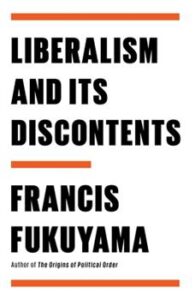If Putin succeeds in Ukraine, it certainly will not doom democracy around the world or even in Europe. But research suggests that domestic regime types, including liberal or constitutional democracy, tend to spread and contract in waves over time and geographic space, says University of Virginia professor John M. Owen.
A Russian victory in Ukraine could mean a net gain for authoritarianism. It would show that authoritarian states can win in the 21st century, remove a threat to Russia’s own authoritarianism and put an authoritarian country on the border of some young democracies just to the west – Poland, Slovakia, Hungary, Romania and Moldova, he adds. It would cast doubt on the power of the liberal international rules and institutions that for decades have helped sustain democracy even in our own country.
 Vladimir Putin has insisted that the liberal era is over, and Russia’s invasion of Ukraine will be a test of liberalism’s robustness in the international and democratic sphere’s, observers suggest.
Vladimir Putin has insisted that the liberal era is over, and Russia’s invasion of Ukraine will be a test of liberalism’s robustness in the international and democratic sphere’s, observers suggest.
Liberalism can’t afford to rely on antagonists’ flaws and needs to refresh, re-evaluate and rethink, according to a new book from former National Endowment for Democracy board member Francis Fukuyama.
After the Jan. 6 Capitol Hill insurrection, America’s credibility in upholding a model of good democratic practice was shredded, Fukuyama observed.
This precedent is bad enough, but there are potentially even more dangerous consequences of Jan. 6. The global rollback of democracy has been led by two rising authoritarian countries, Russia and China, he wrote for The New York Times:
Both powers have irredentist claims on other people’s territory. President Putin has stated openly that he does not believe Ukraine to be a legitimately independent country but rather part of a much larger Russia. He has massed troops on Ukraine’s borders and has been testing Western responses to potential aggression. President Xi of China has asserted that Taiwan must eventually return to China, and Chinese leaders have not excluded the use of military force, if necessary.
A key factor in any future military aggression by either country will be the potential role of the United States, which has not extended clear security guarantees to either Ukraine or Taiwan but has been supportive militarily and ideologically aligned with those countries’ efforts to become real democracies, Fukuyama suggested. RTWT
But no other creed appears close to addressing the most compelling challenges of modernity, he intimates.
“Classical liberalism can best be understood as an institutional solution to the problem of governing over diversity,” Fukuyama wrote in “Liberalism and Its Discontents,” his initial essay in American Purpose. “It does this by “deliberately not specifying higher goals of human life.”







